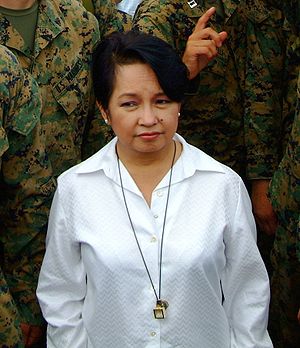AIE BALAGTAS SEE, GMANews.TV
07/01/2009 | 10:15 PM
MANILA, Philippines — The number of Influenza A(H1N1) cases in the Philippines has jumped past the 1,000-mark from 861 last June 26, proving the rapid spread of what the Department of Health (DOH) called a "mild virus."
In a press briefing on Wednesday, Health Secretary Francisco Duque III said the country's total infected cases now stand at 1,709 and is expected to increase in the coming days.
Duque said the National Capital Region (Metro Manila) has the most number of cases with 1,225 or 72-percent of the total figure. Most cases were from Quezon City, Manila, Parañaque, Pasig, and Makati.
The country's first A(H1N1) related death was also from Metro Manila. The death of the 49-year-old woman, who had existing medical conditions, was announced by the DOH on June 22.
Metro Manila was followed by Region 4-A (Calabarzon) and Region 3 (Central Luzon) in the most number of infections, while Region 2 (Cagayan Valley) and the Autonomous Region of Muslim Mindanao still have no reported cases.
Despite the country's A(H1N1)-related death, Duque reiterated that there is no need to panic because the virus is mild in nature. In fact, 86 percent or 1,485 of the patients have already recovered and been discharged.
He said that the remaining 14 percent or 224 are still under treatment, but most of them under home management.
Following the recent developments, Duque III said the government is bolstering mitigation efforts to reduce the impact of the virus in the country.
"As we anticipate more cases in the coming months, we must institute effective measures to save lives and prevent deaths and to reduce the impact of the pandemic to our national and the economy," Duque said.
He said he convened with members of the A(H1N1) Task Force, chief of all DOH-retained hospitals, and some representatives from the private sector last June 30 to ensure that they have the capacity to administer care to swine flu patients, especially those who are considered "high-risk patients," where severe manifestations of the virus are seen.
High-risk group include those with medical conditions such as asthma, diabetes, cardiovascular disease, immuno-suppression, HIV/AIDS, tuberculosis, as well as pregnant women, and the very young and the elderly.
Duque also met with member agencies of the National Disaster Coordinating Council (NDCC), particularly the Department of Interior and Local Government (DILG), to ensure that local governments have systems in place and that hospitals and primary health care facilities under their jurisdiction are able to "identify, treat and manage A(H1N1) cases."
He also met with the Department of Education, Commission on Higher Education, and Technical Education and Skills Development Authority to assist the DOH in its nationwide campaign against the virus.
"This is to make sure that our information and education activities reach all schools, barangays and provinces in the country," Duque said. - GMANews.TV
From GMANews.tv; see the source article here.






















































